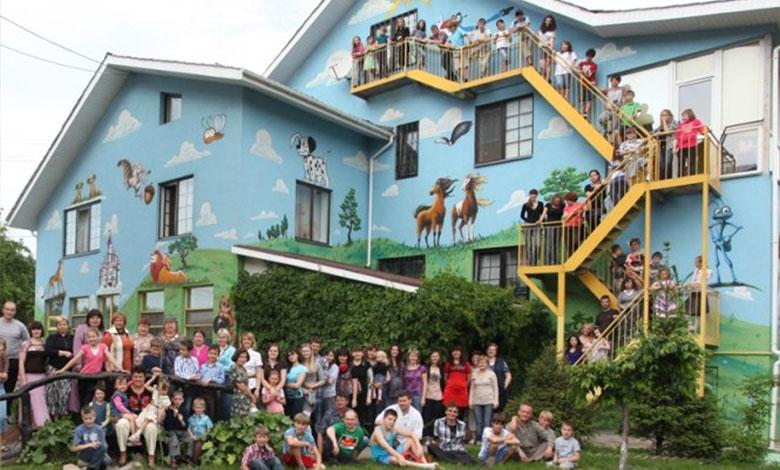The Government of Ukraine has allocated 833 million hryvnias for the purchase of housing for large foster families

During the war, the issue of childhood goes far beyond upbringing and education. In the conditions of mass losses, deportations, evacuations and destroyed families, it is the foster families that become the backbone that helps children not only to survive, but also to maintain faith in a world where there is still warmth, care and safety. Helping these families is a strategic necessity that has a direct impact on the future of the country. That is why state initiatives to provide housing for family-type children’s homes in wartime conditions are of particular importance.
This year, the government of Ukraine allocated 833 million hryvnias for the purchase of housing for large foster families. The procurement process has already started – that’s about it reported Ministry of Social Policy. Funding is directed at the expense of a subvention from the state budget and allows housing for more than 120 large foster families in various regions of Ukraine. At the same time, at least 50 of these families are newly created, which indicates an increase in the number of families ready to take responsibility for children left without parental care as a result of the war.
The implementation mechanism involves the participation of local communities, which coordinate the purchase of houses and ensure the integration of families into the new environment. This is especially relevant for those regions where internal migration continues, as many adoptive families were forced to leave their homes due to hostilities or occupation.
According to official information, the state plans to provide more than 700 foster families with housing by 2029. This step not only improves the living conditions of orphans and children deprived of parental care, but also creates a stable environment in which children can feel part of the family again.
Another important decision was the policy of simplifying the access of such families to housing subsidies. Now the purchase of housing, the presence of foreign currency or debts for communal services will not become an obstacle to receiving state support. This means that families who open their doors to orphans and take responsibility for their future will not be left without resources to pay for basic needs.
It is worth noting that in parallel with housing financing, the state is also developing other support projects, including the “Address of Childhood” initiative. Within the scope of this project, assistance is provided not only in finding housing, but also in the formation of a favorable social environment around the foster family: from ensuring the educational process to the social adaptation of children.
According to experts, foster families and family-type children’s homes during the war became one of the pillars of the child protection system. Thousands of children who have survived the loss of their parents, deportation, violence, occupation or hostilities live in them today. They need not only psychological support, but also basic stability – a roof over their head, in which there is no threat, and adults who can be trusted.
The war also aggravated the problem of housing shortage for such families. Some of them have moved from the war zone, lost their homes or are temporarily living in rented accommodation without any guarantees. Allocation of funds in 2025 is not just an investment in square meters, it is an investment in the trust that should be born between the child and the new family.
The state policy of supporting foster families during the war, in particular through the financing of housing, is a necessary step in the field of social protection. The conditions in which children who lost their parents or were injured as a result of hostilities find themselves today do not require temporary solutions, but long-term, stable support mechanisms. In conditions of full-scale war, this support becomes especially important, as it allows families with adopted children to live in a safe environment without feeling threatened by losing their housing or access to public assistance. The fact that such programs did not collapse, but, on the contrary, were strengthened is an indicator that the system is responding to new challenges.





